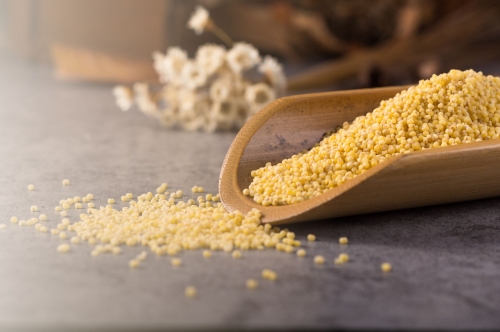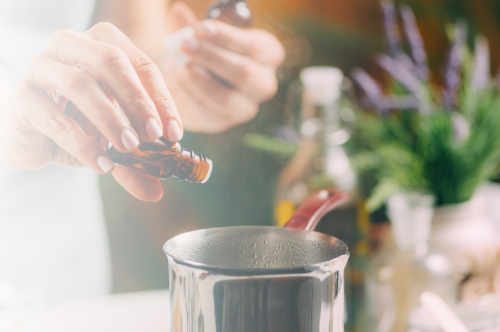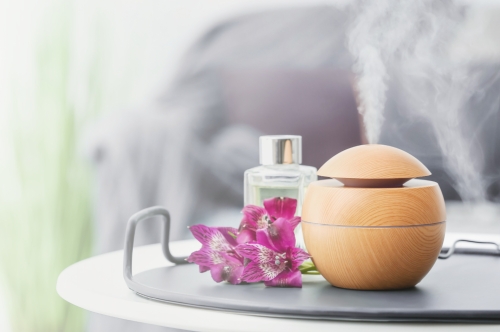10 Surprising Benefits of Essential Oils for your Health and Wellness

What are Essential Oils?
Essential oils are highly concentrated plant extracts that capture the aromatic compounds and beneficial properties of plants. They are typically obtained through processes such as steam distillation or cold pressing. Essential oils are used in various applications, including aromatherapy, skincare, natural cleaning products, and more. They are known for their distinct scents and can have potential therapeutic benefits, such as promoting relaxation, relieving stress, and supporting overall well-being.
10 Surprising Benefits of Essential Oils
Essential oils have been used for centuries for their many health and wellness benefits. While there is still some scientific research to be done, there is a growing body of evidence to support the use of essential oils for a variety of conditions.
Here are 10 surprising benefits of essential oils:
- Reduce stress and anxiety: Essential oils can help to reduce stress and anxiety by stimulating the production of calming neurotransmitters in the brain. Some of the best essential oils for stress relief include lavender, chamomile, and ylang-ylang.
- Improve sleep: Essential oils can help to promote sleep by relaxing the body and mind. Some of the best essential oils for sleep include lavender, chamomile, and valerian.
- Boost the immune system: Essential oils can help to boost the immune system by fighting off infection and inflammation. Some of the best essential oils for immunity include oregano, thyme, and eucalyptus.
- Relieve pain: Essential oils can help to relieve pain by reducing inflammation and stimulating the production of endorphins. Some of the best essential oils for pain relief include peppermint, ginger, and wintergreen.
- Improve skin health: Essential oils can help to improve skin health by reducing inflammation, fighting off infection, and promoting cell regeneration. Some of the best essential oils for skin health include lavender, tea tree, and rosehip.
- Improve hair health. Essential oils can help to improve hair health by reducing dandruff, stimulating hair growth, and protecting against hair damage. Some of the best essential oils for hair health include lavender, rosemary, and peppermint.
- Improve respiratory health: Essential oils can help to improve respiratory health by clearing congestion, reducing inflammation, and fighting off infection. Some of the best essential oils for respiratory health include eucalyptus, peppermint, and thyme.
- Improve digestive health: Essential oils can help to improve digestive health by reducing inflammation, stimulating digestion, and fighting off infection. Some of the best essential oils for digestive health include peppermint, ginger, and chamomile.
- Improve mood: Essential oils can help to improve mood by reducing stress, anxiety, and depression. Some of the best essential oils for mood improvement include lavender, chamomile, and grapefruit.
- Increase energy levels: Essential oils can help to increase energy levels by stimulating the production of hormones and neurotransmitters that promote alertness and vitality. Some of the best essential oils for energy boosting include peppermint, grapefruit, and lemon.
Benefits of Essential Oils
- Tea tree oil benefits-: Tea tree oil offers several benefits due to its natural antibacterial, antifungal, and anti-inflammatory properties. It can help prevent and treat infections, such as acne, cuts, and wounds. The oil's antifungal properties make it effective against conditions like athlete's foot and nail fungus. Additionally, tea tree oil is known for its skin-cleansing and purifying effects, making it useful for controlling oil production, unclogging pores, and improving overall skin appearance. It can also soothe the scalp, relieve dandruff, and reduce itching. However, caution should be exercised when using tea tree oil, as it can be irritating to some individuals, and proper dilution and patch testing are recommended.
- Eucalyptus oil benefits-: Eucalyptus oil offers various benefits due to its unique properties. It is known for its expectorant and decongestant qualities, making it helpful in relieving respiratory issues like coughs, colds, and sinus congestion. The oil's analgesic and anti-inflammatory properties can provide relief from muscle and joint pain. Eucalyptus oil is also utilized for its antimicrobial properties, which can aid in treating skin infections and promoting wound healing. Additionally, it is often used in aromatherapy to enhance relaxation and promote mental clarity. However, caution is advised when using eucalyptus oil, as it can be toxic if ingested and may cause skin irritation in some individuals
- Lavender oil benefits-: Lavender oil offers various benefits, including relaxation and stress relief. Its calming aroma promotes better sleep and helps alleviate anxiety. The oil's skin healing properties reduce inflammation, soothe minor burns, and relieve insect bites. It has antiseptic and antimicrobial properties, making it useful for treating cuts and wounds. Lavender oil also promotes hair growth and reduces dandruff. However, it should be used in moderation and with caution for potential allergic reactions.
- Peppermint oil benefits-: Peppermint oil provides several benefits due to its unique properties. It is commonly used to relieve digestive discomfort and soothe symptoms of irritable bowel syndrome (IBS). The oil's cooling and invigorating aroma can also help alleviate headaches and migraines. Peppermint oil has a natural antiviral and antibacterial effect, making it useful for respiratory congestion and sinusitis. It can also provide relief for muscle pain and tension. However, caution is advised when applying peppermint oil topically, as it may cause skin irritation for some individuals
- Rosemary oil benefits-: Rosemary oil offers numerous benefits due to its properties. It is known for its stimulating and invigorating aroma, which can enhance focus and memory. The oil has antioxidant and anti-inflammatory properties that support healthy scalp and hair, promoting growth and reducing dandruff. Rosemary oil can also be beneficial for relieving muscle pain and improving circulation. Additionally, it has antimicrobial properties that can help combat certain skin conditions. However, pregnant women and individuals with epilepsy should avoid using rosemary oil due to its stimulating effects.
- Ginger oil benefits-: Ginger oil provides various benefits due to its unique properties. It is commonly used to alleviate digestive issues, including nausea, indigestion, and bloating. The oil's warming and soothing properties can help relieve muscle and joint pain, making it useful for conditions like arthritis. Ginger oil also has antimicrobial properties that can support the immune system. Additionally, its stimulating aroma can help improve focus and concentration. However, it's important to note that ginger oil should be used in moderation, as high doses may cause skin irritation or interact with certain medications.
- Clove oil benefits-: Clove oil offers several benefits due to its powerful properties. It is commonly used for its analgesic and numbing effects, providing relief from toothaches and gum pain. The oil's antiseptic and antimicrobial properties make it useful for treating oral infections and promoting oral health. Clove oil also has anti-inflammatory properties that can help soothe muscle and joint pain. Additionally, it can aid in digestion and relieve respiratory conditions like coughs and colds. However, it should be used in moderation, as excessive use may cause skin irritation or allergic reactions.
When using essential oils, it is important to use them safely. Always dilute essential oils in a carrier oil before applying them to the skin. It is also important to avoid using essential oils internally unless you are under the guidance of a qualified aromatherapist.
Here are Some Tips for Using Essential Oils Safely:
- Always dilute essential oils in a carrier oil before applying them to the skin.
- Avoid using essential oils internally unless you are under the guidance of a qualified aromatherapist.
- Do not use essential oils near an open flame.
- Keep essential oils out of the reach of children and pets.
- If you have any concerns about using essential oils, talk to your doctor.
- With proper use, essential oils can be a safe and effective way to improve your health and well-being.
Frequently Asked Questions
1) What are the precautions when using essential oils?
When using essential oils, it is important to use them safely. Always dilute essential oils in a carrier oil before applying them to the skin. It is also important to avoid using essential oils internally unless you are under the guidance of a qualified aromatherapist.
2) Can essential oils be ingested?
In general, it is not recommended to ingest essential oils without proper guidance from a qualified professional. Essential oils are highly concentrated and can be toxic or harmful when ingested in large amounts or without proper dilution. Some essential oils may also interact with medications or have adverse effects on certain individuals. If you are considering ingesting essential oils for therapeutic purposes, it is important to consult with a qualified aromatherapist, herbalist, or healthcare provider who can provide appropriate guidance and ensure your safety.
3) Can essential oils interact with medications?
Yes, essential oils can potentially interact with medications. Some essential oils may interfere with the metabolism of certain drugs, affecting their effectiveness or increasing the risk of side effects. It is important to consult with a healthcare professional if you are taking medications and considering using essential oils to ensure there are no contraindications or potential interactions. They can provide personalized advice based on your specific medications and health conditions.
4) How long do essential oils last?
The shelf life of essential oils can vary depending on the specific oil and storage conditions. Generally, essential oils can last for several years when stored properly in a cool, dark place and tightly sealed to prevent exposure to air and light. Citrus oils tend to have a shorter shelf life compared to oils derived from wood or resin. It's also important to note that over time, the aroma and therapeutic properties of essential oils may gradually diminish. Checking the specific expiration date or recommended shelf life on the essential oil bottle is advisable.












